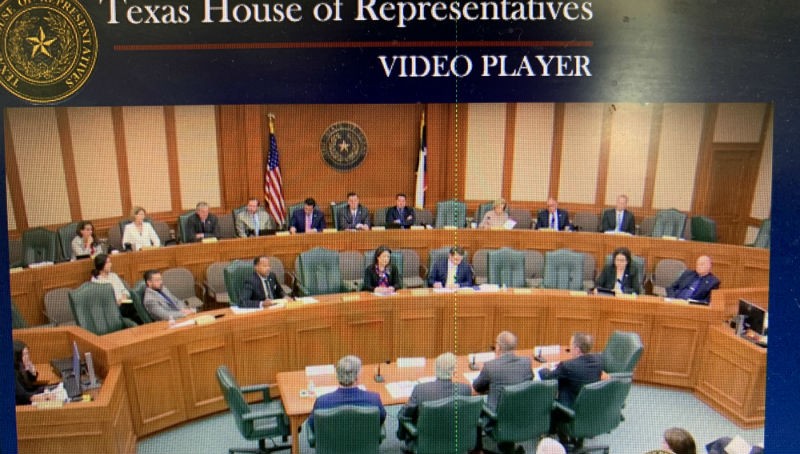ITC, who used independent fire fighting contractors including U.S. Fire Pump, didn’t immediately reach out for state or federal help in containing the fire. State Rep. Ed Thompson (R-Pearland) raised the question of whether action should be mandated by authorities sooner in the future. “I wonder if there should be some sort of protocol of who takes charge of that and when. Whether it’s the fire marshal or someone that’s evaluating this situation saying, this thing is way beyond what we have the assets and facility to do.”
Questions surround the fact that ITC, who has authority over everything within its property line, could have asked for help from the local authorities and beyond, used federal resources sooner. On the other hand, were local, state, and federal agencies feeling the need to step in, they would have to assess whether or not they could financially, as well as gain court approval beforehand.
“I don’t know if I feel real comfortable with that myself,” Thompson reiterated. “I think that at some point in time, we as a state, need to establish some sort of guideline as to when someone is there to make that call.”
Whether the immediate threat of a chemical fire should warrant action from all government agencies capable of helping, financial challenges incurred by local, state and federal do weigh heavily on decision making. A representative for the Texas Commission on Environmental Quality stated, “A glimpse of what this is going to cost is going to be significant, in one of the second flare ups, when they had plenty of foam on site, just to tap down that fire was probably about a half a million dollar shot of foam.”
Texas Representative Tony Tinderholt (R-Arlington) circled back to the matter first breached by Thompson of mutual aid, the sharing of resources between agencies in times of emergency. He asked Harris County Fire Inspector Toby Rhodes whether there is statewide mutual aid for those resources that are very expensive. Especially, again, referencing smaller communities that can’t afford them. Without any definitive answers made, the question still stands.
Tinderholt then questioned the Mayor of Deer Park, Jerry Mouton, on the length of time it took to respond to the public, 47 minutes— but more specifically, whether or not established emergency action plans with decision points could have been more efficient. "My concern is, 47 minutes, with people calling 911 and no information, it sounded like they really didn't have any response prepared."
Mouton responded that there isn't a regulatory process and that they did the best they could. "I can't account for the whole scenario and can't even begin too; it's going to have to looked at in the investigation." Mouton did describe this situation as a worst case scenario, especially the first five days where continued flare-ups, benzene emissions and a wall breach that caused chemicals and fire fighting materials to spill into the Houston Ship Channel plagued efforts to contain the situation.
Tinderholt went on to emphasize the crucial importance of emergency action plans with decision points in place. "There may need to be regulation, because our job as legislators is to protect the lives, to make sure that people are safe, and it sounds to me that with a 47 minute lag time there needs to be some kind of standards for decision points." In response Mouton said that his jurisdiction can't supersede the regulatory process of state or federal scenarios. He stated, "A lot of times we're demonized on a local level in regards to some scenarios we are held accountable for that's either state and federal regulations that we're limited to in regards to how we handle situations."


